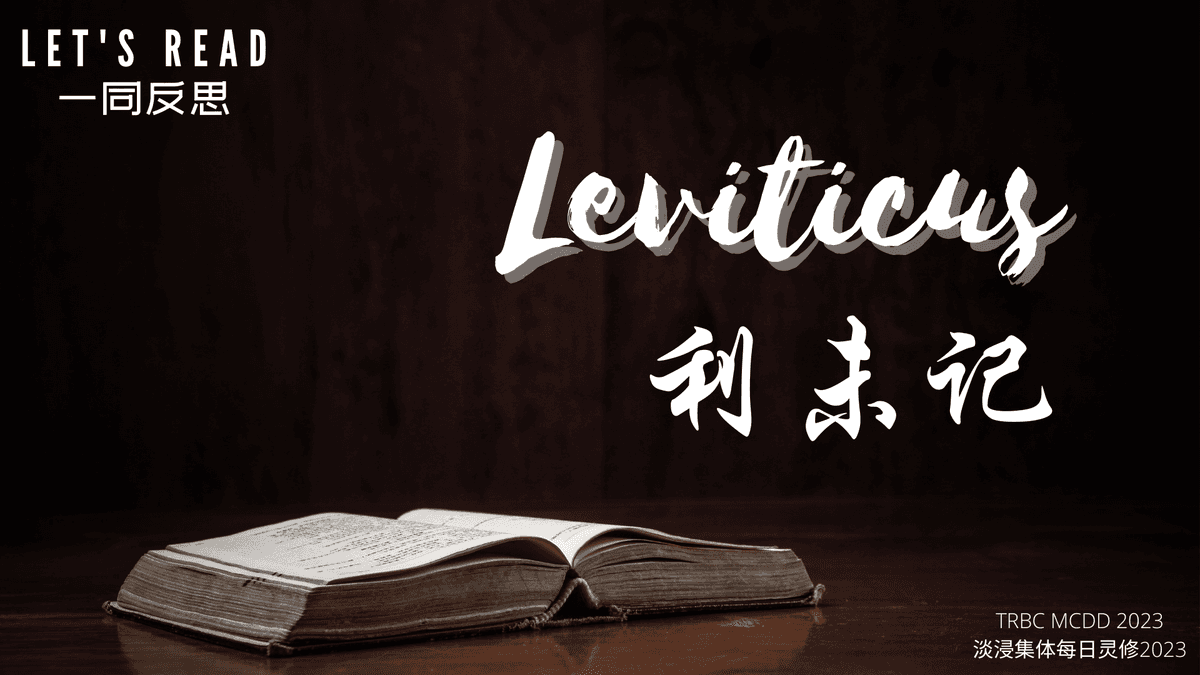Last 5 Days

Posture of Worship

Click here to read Leviticus 7
Leviticus 1 - 5 were concentrated on what the worshipper has to do in offering their sacrifices, whereas chapter 6 - 7 focused on the priests’ role in the same worship. If you were a layman, you would want to know when to offer a peace offering or a sin offering. You would also be interested in what kind of animals you had to bring for the different sacrifices, and what you had to do at the service. If, however, you were a priest, you would also have been interested in the order of rituals as well. It was the worshipper’s duty to bring the animals on the right occasions, it was the priest’s to sacrifice it according to the proper form. He had to know which parts of the animals had to be burned, which could be eaten and which could not. Leviticus 6 – 7 were mostly addressed to the priests in allowing them to perform their duties.
In chapter 6 -7, the sacrifices were arranged in order of their frequency. The regular daily sacrifices come first, ie, the burnt offering, grain offering. This was followed by the sin offering, which were compulsory only at certain festivals or after someone had sinned. The guilt offering never offered on a regular basis, but was mandatory following certain sins. Finally the peace offering was generally an optional sacrifice. These laws that were written paid attention to details and God expected both the worshippers and priests to obey these sets of instruction. If not taken with care, the man who offered it will not be accepted and each shall bear his iniquity (7:18). Even worse, careless worship might result in the worshipper being cut off from the his people (7:21). Israel paid serious attention and in reverence to the worship they offer unto God. In the New Testament, the Hebrew author tells us to be thankful, and to worship God acceptably with reverence and awe, for our “God is a consuming fire.” (Hebrews 12:28-29)
Jesus said that God must be worshipped in spirit and truth, but it does not mean that the form of worship is to be disregarded and taken in a casual manner. Gordon Wenham tells us that:
“It has become commonplace to contrast spirit and form as if they were incompatible in worship. Spontaneity and lack of preparation is equated with spirituality. Lev 6-7 denies this: care and attention to detail are indispensable to the conduct of divine worship. God is more important, more distinguished, worthy of more respect than any man; therefore we should follow his injunctions to the letter, if we respect him.”
Dear brothers and sisters, how about us in our posture of worship unto the Lord? We might no longer be following the ceremonial laws in the Leviticus time, and our conventions of worship might have differed utterly from the ancient Israel. But the question remains, do we pay attention to the conventions of our own worship? Are we coming to the King of kings and the Lord of lords with reverence and awe. Do we put on our best, whether in our attire, our attitude of service when offering our worship unto Him? Do we pull out our phone to catch up with social media updates in the midst of listening to His Word? Do we fumble with our last minute thoughtless offering weekly? How is our posture of worship unto the Lord? Do we pay attention to the details in our conduct of divine worship?
In the same way, if you are serving up as a “priest” to lead people in the time of worship, be it as a worship chairperson or worship team, do you take time to consecrate or examine yourself in preparation of the time to lead people into the presence of our Holy God?
When we looking at anygreat and spirited performances in the arts centre, they are achieved through practice and attention to details. All great actors and musicians spend hours studying and rehearsing the works they are to perform so that they can recapture the spirit of the author and convey it in their performances. Worship, is a performance, a performance with the audience of one and that is our Lord and King, Jesus Christ. What is the posture of your worship unto the Lord? Let us come to worship God acceptably with reverence and awe, for our “God is a consuming fire.”
